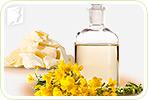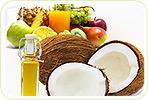Vaginal dryness is a common symptom of menopause, and many women seek treatments for this condition. Lifestyle changes - whether implementing new habits or avoiding old ones - can help alleviate dryness. Women should not have to live with vaginal dryness, and effective treatments are available to help soothe it.
What Natural Methods Are Available to Relieve Vaginal Dryness?
Making minor adjustments to your lifestyle can help alleviate vaginal dryness. Helpful changes include:
-

Shower after working out. Sweat, humidity, and excessive moisture can agitate the vagina and lead to yeast infections. This means that it is important to take a shower and rinse off down there after working out or participating in other strenuous activities.
Dietary additions. Omega-3 fatty acids from fish and seafood help with lubrication and the reduction of inflammation. It is also important to eat a balanced and healthy diet for overall health.
Regular exercise. Physical activity, in addition to its overall health benefits, helps blood circulation. Increased blood flow to the vagina often improves vaginal health and sexual function.
What Should I Avoid to Help Relieve Vaginal Dryness?
Just as important as the actions you take to soothe your vaginal itching and dryness are those from which you abstain. The following should be avoided when dealing with vaginal dryness:
Douching. Contrary to popular belief, douching is a counterproductive way to cleanse your vagina because it contains harsh substances that can alter the delicate pH balance that the vagina needs. The vagina cleans itself naturally, so you do not need to add in any additional cleaning products.
Fragrant soaps. Avoid using body soaps on the vagina because they often contain fragrances and other compounds that can be irritating to the sensitive tissue. In addition, bubble bath mixes may irritate the vaginal tissue.
-

Certain underwear. Your everyday underwear should be made out of breathable fibers, such as cotton, and be cut in a way that you receive proper coverage and are free of irritation.
More Information about Vaginal Dryness
It is also a good idea to use lubricant or moisturizer to combat vaginal dryness. Both can be purchased over the counter, although moisturizer can be prescribed with hormone replacement therapy in it, which has also been shown to be effective. Lubricants are not absorbed into the vagina and work by decreasing friction during sex. Lube should be applied before or during sex. Usually, water-based lubricant is recommended because other types can cause infections and tear condoms.
Moisturizers are applied to the vagina regularly and absorbed by the vagina in order to increase moisture levels in the area. If vaginal dryness does not subside, it may be a good idea to see a doctor who will be able to recommend effective medicine. Click on the following link to learn more about natural remedies for vaginal dryness.
Sources
- Bachmann, G.A. & Nevadunsky, N.S. (2000). Diagnosis and Treatment of Atrophic Vaginitis. American Family Physician, 61, 3090-3096. Retrieved from http://www.aafp.org/afp/2000/0515/p3090.html
- Mayo Clinic Staff. (2013). Vaginal Atrophy. Retrieved November 11, 2015, from http://www.mayoclinic.org/diseases-conditions/vaginal-atrophy/basics/definition/con-20025768
- The Changing Body: Menopause Handbook.(n.d)."Vulvovaginal Symptoms". The Changing Body: Menopause Handbook.Retrieved from www.menopause.org
- Love, Susan M.D. Menopause and Hormone Book. New York: Three Rivers Press, 2003.



